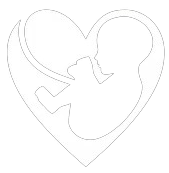Our clinic donates gynecological care services to underprivileged families, ensuring that all women have access to essential health services regardless of their economic situation.
Recognizing the early signs of pregnancy can help you confirm your pregnancy early and start taking precautionary steps to ensure your and your baby's health. While several early signs and symptoms could suggest you are pregnant, the most definitive way to determine this is through a home pregnancy test. So here is an extensive look into these early signs of pregnancy, which will help you prepare for it.
1. Delayed or Missed Period
One of the key signs of early pregnancy in women is a missed monthly flow. When you have been used to seeing your periods every month but suddenly it stops, you might need to take some pregnancy tests. However, this symptom can be less reliable for women with irregular cycles.
2. Fatigue
Feeling unusually tired is another early sign that one may be pregnant. Fatigue is the underlying cause as the body undergoes significant hormonal fluctuations to support fetal development. In addition, increased levels of progesterone tend to make women feel more tired than usual, even during the earlier stages of their pregnancies.
3. Nausea and Vomiting
Morning sickness, also called nausea and vomiting, can begin two weeks after conception. Despite its name, morning sickness can occur at any time of the day or night. It can sometimes be mild, while at other times, it turns into severe cases that persist throughout gestation.
4. Breast Changes
Tender, swollen, or sore breasts might be one of the earliest indications of pregnancy. An increase in hormones causes more blood flow into your breasts, making them sensitive. Moreover, some women notice their nipples darkening and becoming more prominent.
5. Frequent Urination
Pregnancy results in the body producing additional fluids, which accounts for frequent bathroom visits. This sign can occur as early as six weeks into gestation. Moreover, the growing uterus applies pressure against your bladder, causing regular urination.
6. Food Aversions and Cravings
During pregnancy, your sense of taste and smell may change, leading to food likes and dislikes. Sometimes, you may find that foods you usually like become distasteful or that you crave unusual combinations. Even if a strong desire for some foods and strong dislikes for others comes over you, it is essential to have a balanced diet.
7. Mood Swings
Hormonal fluctuations cause the mood swings experienced in early pregnancy. You will be more emotional than usual, perhaps even tearful like one would experience before their menstruation cycle begins. These feelings can be managed with techniques to deal with stress, such as talking to supportive friends, doing yoga exercises, or meditating.
8. Distended Belly
One of the early signs of pregnancy is bloating, which occurs when the progesterone level increases, just as during menstrual periods. That is why some women complain about being bloated: Progesterone slows the digestive system so fluids cannot move freely. Imagine your digestive system as a pipe—when progesterone levels go up, the pipe narrows, accumulating fluids and gases.
9. Headache and Dizziness
Other changes might lead to headaches or dizziness due to increased blood volume and hormonal fluctuations during the early stages of pregnancy. Pregnant mothers should drink more water and eat small, frequent meals anytime they feel inadequate regarding food consumption. Consulting healthcare professionals becomes necessary if headaches are excruciating or when there is a lot of dizziness; however, this should not cause any alarm since these symptoms do not pose any threat unless they hinder normal functioning.
10. Lower Back Pain
Early pregnancy can cause lower back pain due to changes in the body's center of gravity and the stretching of ligaments supporting the growing uterus. People can manage pain by practicing good posture and engaging in gentle exercises like prenatal yoga.
11. Cervical Fluid Alteration
An increase in cervical fluid often indicates either early pregnancy or regular ovulation. It can become thicker and creamier, maybe even more discharge than usual. For this reason, women trying to conceive should frequently mark these changes on a calendar every month.
When should you take a pregnancy test?
If all these symptoms show up simultaneously, it might be wise to go for a home pregnancy test if doubt crops up. These tests detect the presence of hCG (human chorionic gonadotropin), which is produced by the placenta during pregnancy; hence, it would be best to wait until you miss your period before testing yourself.
Confirm Pregnancy
Once the home pregnancy tests yield positive results, you have to immediately arrange an appointment with a healthcare provider to confirm this and initiate regular prenatal care. Blood examinations and scans for your baby's growth will be done by your doctor, who will also establish how long it has been since you got pregnant.
Although these symptoms may suggest that one is pregnant, they can be attributed to other illnesses or hormonal imbalances. If you feel that you might be pregnant, it is only logical that a home pregnancy test should be the first thing on your mind, which will necessitate some guidance from a health practitioner concerning this matter. Besides, it is worth noting that some women do not even experience such signs during their early pregnancies yet still have healthy and normal pregnancies. Timely detection combined with appropriate prenatal care guides all through gestation up to the delivery of a healthy baby.
Keywords:
- early signs of pregnancy
- signs of early pregnancy
- pregnancy tests
- morning sickness
- home pregnancy test
- early pregnancy
- hormonal fluctuations

